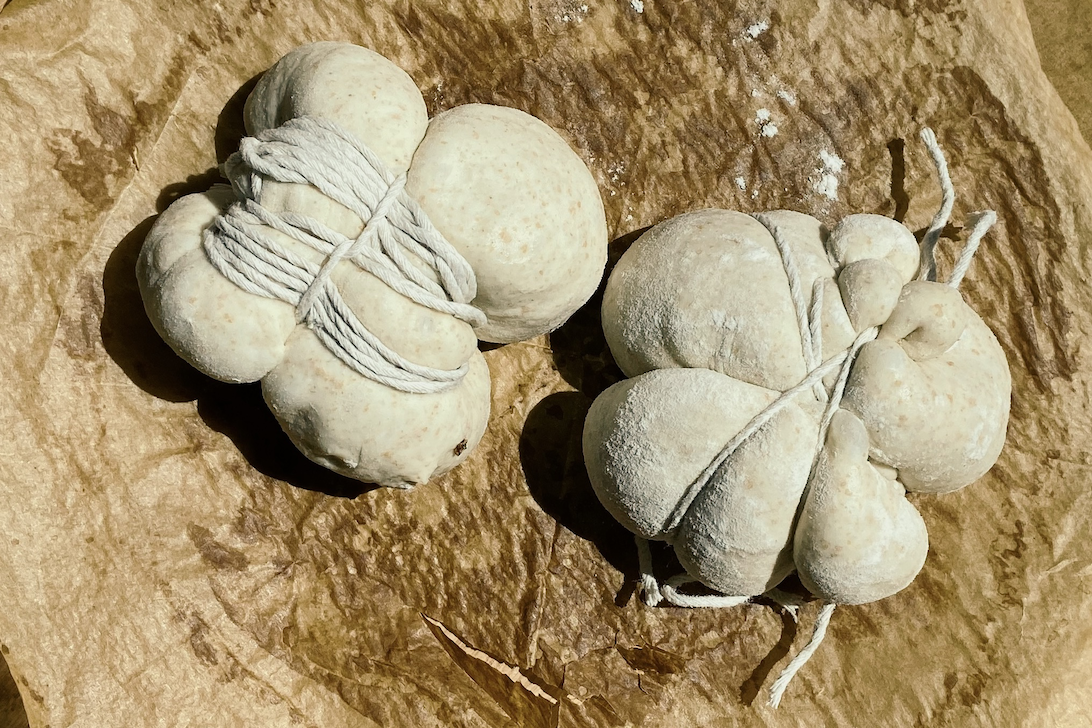Series
ECOTONES
On the occasion of the exhibition Life on Earth: Art & Ecofeminism (Sept 15-Dec 22, 2024), The Brick and Active Cultures are partnering to present a series of events, ECOTONES. Four public programs will be led by an artist or artist-collective to explore local agriculture, foraging, food and herbalism as ritual, and biodiversity.
Through this collaboration, these two L.A.-based art organizations are modeling an ecofeminist ethos by sharing authorship, and collectively generating materials and resources. Taking place in conjunction with the Getty Foundation’s ambitious initiative PST ART: Art & Science Collide, ECOTONES will be part of a region-spanning cultural moment, reaching vast audiences interested in the intersection of art, food, feminism, and sustainability.
Programs
September 22, 2024
ritual paintings and a Kamayan Feast with Paige Emery
Paige Emery is an artist, herbalist and plant dreamer exploring rituals of remembering the Earth. Her work is interested in interweaving healing rituals and critical ecology, ancestral memory and embodied futurities, ecopoetics and socioenvironmental praxis. Stemming from a background in art, herbalism, critical ecophilosophy, environmental activism, and learning from the Earth, Paige’s decolonial and ecofeminist practice serves to recalibrate the internal landscape to the external landscape. This takes shape through multitudes of entangled forms such as paintings alchemized with plants, site-specific land art installations, plant rituals for more-than-human communication, performance lectures, guided ecology walks, and sharing herbal remedies with her community.
October 13, 2024
a film screening and foraged food with Meech Boakye
Meech Boakye is an artist and writer currently based in Portland, Oregon. Their practice is rooted in relationships with floral, fungal, and microbial kin as armatures for learning how to be in community. Material research functions as a formal conduit for remediation from extractive landscapes while relational works attempt to imagine speculative futures embedded in care. Works are suspended in gelatin biopolymers; fed, aged, shared; digested in stomachs or piles of hot compost; coded, or are collaboratively written with friends and neural-network AI.
November 2, 2024
a SPROUTIME kids workshop with Leslie Labowitz-Starus
Leslie Labowitz-Starus, Los Angeles artist and entrepreneur, is best known for her public performance work on violence against women in collaboration with Suzanne Lacy from 1977–82. In 1972, she was a Fulbright scholar in Germany, where she worked with Joseph Beuys, and considers herself an Art/Life artist. Since 1980, her art work has shifted to ecological concerns, primarily focusing on food and agriculture. For over 30 years, Labowitz-Starus created performances and installations while building a business, called SPROUTIME. She began as an urban farmer, growing sprouts in her backyard in Venice and expanded her operation to a three-quarter acre agricultural site and food processing facility in the San Fernando Valley in LA County, growing, manufacturing and distributing organic products throughout Southern California. She is considered an expert in the field of sprouting and an authority on urban farming and farmers’ markets.
March 21, 2025
a gathering with Mexico City and Oaxaca-based colectivo amasijo
colectivo amasijo is a group of women from different parts of Mexico (Veracruz, Oaxaca, State of Mexico, and Mexico City) united in their desire to actively reflect on the origin and diversity of our food. The collective was born in 2019 and ever since, has been providing a platform for non–dominant voices: the narratives of women close to the land, stories that tell us the real cost of climate change and show us the way towards the regeneration of the land. As an open collective, they cook collectively to share, learn, care, conserve, relate, and celebrate the (bio)diversity of food. Their projects are aimed at making visible the interdependence between language, culture, and territory. Through these projects, that can take the form of gatherings, dinners, research, actions, ceremonies, exhibitions, markets, seminars, film, talks or other the collective builds the needed structures to form a community in which taking care and taking care of the territory in relation to food is priority.
Registration is free, all are welcome.


